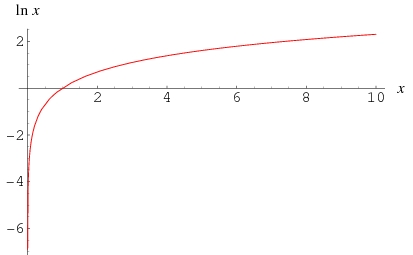

Nano- nano
Natural (logaritmo): logarithm Natural
 |
The natural logarithm, formerly known as the hyperbolic logarithm, is the logarithm to the base e, where e is an irrational constant approximately equal to 2.718281828459. In simple terms, the natural logarithm of a number x is the power to which e would have to be raised to equal x — for example the natural log of e itself is 1 because e1 = e, while the natural logarithm of 1 would be 0, since e0 = 1. The natural logarithm can be defined for all positive real numbers x as the area under the curve y = 1/t from 1 to x, and can also be defined for non-zero complex numbers as explained below. |
Necesario: necessary
Necesitar: to need
Negativo: negative
Novena (la novena parte) - ninth
Nomenclatura: Nomenclature
Normalizar: to normalize
Normalizado: normalized
Notación: notation
Numerador:
Números: numbers
|
|
A number is an abstract entity that represents a magnitude. The symbol of a number is called numeral. The numbers are used very frequently in daily life as labels (telephone numbers, numbering roads), as indicators of order (serial), as codes (ISBN), and so on. In math, the number of definition extends to include abstractions such as fractional numbers, negative, irrational, far-reaching and complex. |
Números arábigos: arabis numbers
|
|
The Arabic numerals are the ten numerals (0,1,2,3,4,5,6,7,8,9), which—along with the system by which a sequence (e.g. "406") was read as a number—were used by North African Arabs and transmitted to Europe in the Middle Ages, from whence they spread with the European conquest. Today they are the most common symbolic representation of number in the world. |
Números mixtos: mix numbers
Números naturales: natural numbers
| In mathematics, a natural number (also called counting number) can mean either an element of the set {1, 2, 3, ...} (the positive integers) or an element of the set {0, 1, 2, 3, ...} (the non-negative integers). The former is generally used in number theory, while the latter is preferred in mathematical logic, set theory, and computer science. A more formal definition will follow |
Números negativos: negative numbers
| Is considered negative if it is less than 0, then the case is "n equal to 0" saying that n is not positive. The Negative is the number that represents an amount or against something that does not necessarily have and we put the symbol (-) Also are negative numbers -1 ... |